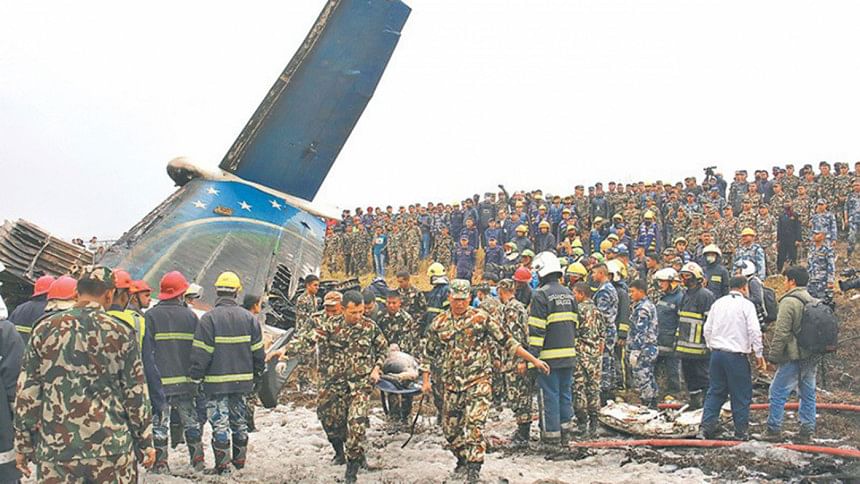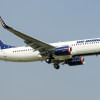US-Bangla plane crash: Families may miss out on fair compensation

Families of the victims of US-Bangla Airline Flight 211, which crashed while trying to land at Tribhuvan International Airport (TIA) on Monday, are unlikely to receive a reasonable amount of compensation due to delays by Nepal and Bangladesh in signing the Montreal Convention 1999.
According to Article 21 of the Montreal Convention, in case of death of passengers, the airline is liable to pay up to 100,000 Special Drawing Rights, equivalent to $145,462, for each passenger. This works out to approximately Rs15.13 million at current exchange rates.
All airlines are covered by the mandatory insurance which pays compensation in case of accidents. It is similar to third-party insurance for motor vehicles. Passengers and their families must be aware of the compensation they are entitled to in case of an accident.
Since Nepal has signed the Warsaw Convention, the airline is liable to pay more than Rs2.08 million per passenger. "There are two different conventions that govern the insurance or compensation amount in case of such accidents," said Subhash Dixit, head of the claim department of Sagarmatha Insurance. "Under the Warsaw Convention, a Nepali passenger gets up to $20,000."
Last Monday, 49 people were killed when a US-Bangla Airlines plane carrying 71 passengers and crew crashed during an 'abnormal' landing at Kathmandu airport. Among the dead, 22 were Nepalis, 26 Bangladeshis and one Chinese.
The Montreal Convention, formally the Convention for the Unification of Certain Rules for International Carriage by Air, is a multilateral treaty adopted by a diplomatic meeting of International Civil Aviation Organization (Icao) member states in 1999.
The provisions of the Convention say: "The carrier is liable for damage sustained in case of death or bodily injury of a passenger upon condition only that the accident which caused the death or injury took place on board the aircraft or in the course of any of the operations of embarking or disembarking."
Bangladesh signed the Montreal Convention on May 28, 1999, but it has not ratified the pact. Nepal has not signed the convention, although the process was initiated in 2010. Among South Asian countries, India, Pakistan and the Maldives are signatories to the convention, hence, the rules apply to the passengers of these countries and each gets $145,462 in compensation.
"Signing the convention was never a priority for the Nepal government," said a senior Tourism Ministry official. "The process is on, but it is very slow."
A draft of the convention has been sent to the Law Ministry for its comments," he said. The Foreign and Finance ministries have given their go-ahead to the proposal. "After the Law Ministry's approval, it will be sent to the Cabinet before being tabled in Parliament."
To enforce the provision, separate laws need to be drafted. "Of course, it will increase the premium airlines have to pay which is added to the passenger's ticket price. But it will impact airlines in the short term only," he said. In the long term, it will increase passenger confidence in the aviation industry as airlines become more liable for passenger safety.
Meanwhile, Nepali domestic airlines have opposed the government's move to fix a uniform liability amount equal to international airlines.
"However, we do not agree them because all passengers, whether travelling on international or domestic airlines, are equal, he said. In Nepal's case, airlines are governed by the Warsaw Convention drafted in 1929. The pact capped damages for injury or death at $8,300 per passenger. This was replaced by The Hague Protocol, a treaty signed on September 28, 1955 in The Hague, which amended the Warsaw Convention. The limit prescribed by the amendment is $20,000 per passenger.
Copyright: The Kathmandu Post/ Asia News Network


 For all latest news, follow The Daily Star's Google News channel.
For all latest news, follow The Daily Star's Google News channel. 







Comments